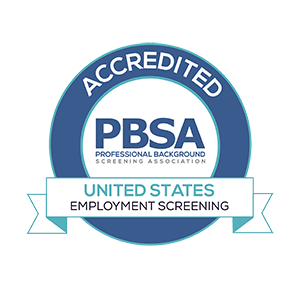The Fair Credit Reporting Act, also called the FCRA, is federal legislation in the United States. It protects individuals who have their background history pulled. Many employers pull background checks during the hiring process and must ensure they follow specific guidelines.
A background check pulled by employers during the hiring process includes various reports. Some reports include driving reports, employment and education history, criminal history, professional licenses, insurance reports, and bank history.
The FCRA Regarding Employment
Employers must disclose to the employee that they will use a third party company to pull a background check. They must also get the employees written authorization. A company that fails to ensure they comply with FCRA could be sued in federal court and end up paying hefty penalties.
The federal government established the FCRA to protect individuals’ privacy during a background screening. When an employer requests the “consumer report” pulled, the protection regulations take effect, companies using the third-party agency to pull employees’ backgrounds must comply with strict rules.
FCRA or the Fair Credit Reporting Compliance Act
Section 605 lists requirements that the third-party agency must follow and prohibits the following information be shown on the report:
- Criminal history, lawsuits, and judgments listed on the report may not be older than seven years old.
- Tax liens that the applicant paid in full over seven years ago can’t appear on the report.
- Bankruptcy cases over ten years old cannot appear on the report.
- The report must not show collections over seven years old paid in full by the applicant or charged-off by the debtor.
- Adverse reaction reports, excluding conviction records, may not be revealed if they are over seven years old.
Some states have policies in place that may restrict the following:
- Discharged or dismissed cases
- Convictions over seven years old
- Records of arrest
Further, there are states with special requirements and limitations in FCRA which involve the following:
- Incorporating the authorization/disclosure check box so the applicant may request a copy of their background report.
- Limitation and restriction policies that apply to reporting and use of the employers and credit reporting agencies
- The act prohibits the reporting of arrests that didn’t lead to convictions.
Conclusion
It’s also essential to keep in mind that if the employer doesn’t hire the applicant because of the report, they must send a pre-adverse action disclosure. The disclosure includes a copy of the information with a copy of the applicant’s rights. The notice must contain the name and address of the Consumer Reporting Agency so the applicant can dispute if they choose to do so.
Once the employment process is complete, the employer must dispose of the confidential documentation correctly. Destroy the information by shredding, burning, etc. A company should ensure they follow all guidelines to avoid disciplinary action. To ensure your company complies with FCRA, contact us for all of your background reporting needs.











Leave a Reply
Want to join the discussion?Feel free to contribute!